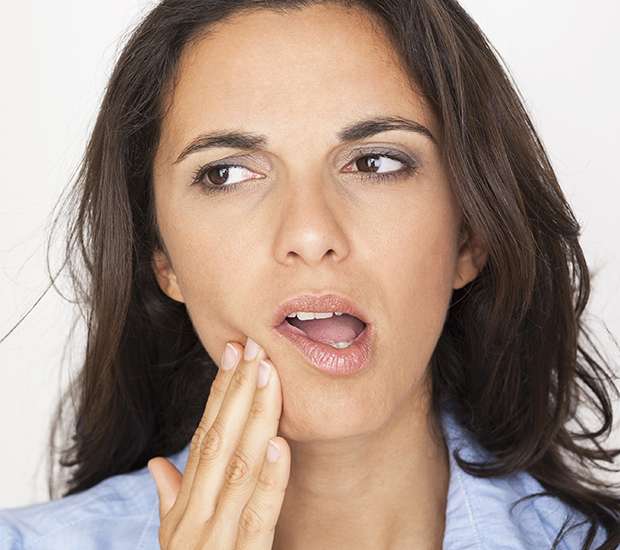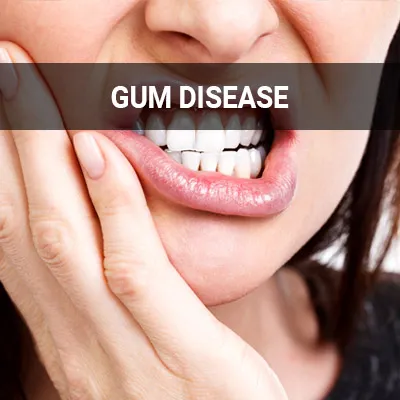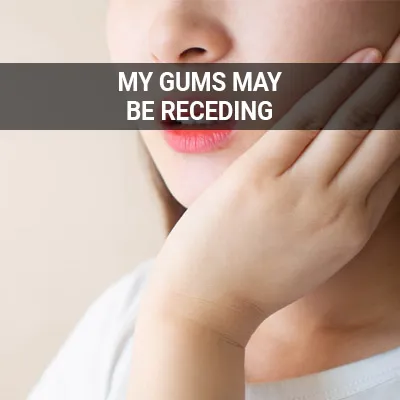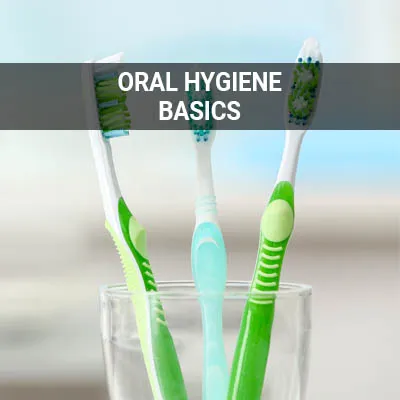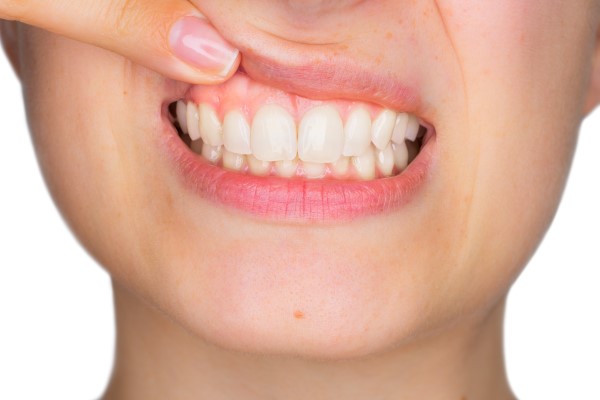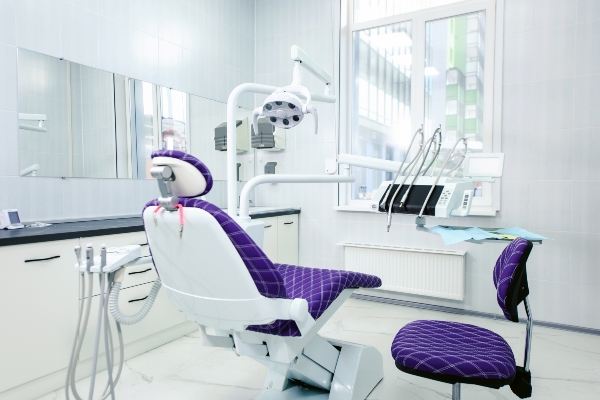Why Are My Gums Bleeding Port Washington, NY
Gum disease can take a toll on your health. Along with oral health issues, gum diseases can have lasting effects on the body. This makes it crucial to seek professional evaluation and treatment when noticing bleeding gums. In many cases, bleeding gums are often an early warning sign of gum disease.
Treatment for gum disease is available at Dazzling Smile Dental Group Of Port Washington in Port Washington and the surrounding area. First, our team performs an in-depth exam to determine the cause of your symptoms. Next, we offer a range of treatments to improve your oral health. Early diagnosis and treatment can help you avoid complications. Call us at (516) 301-1005 to schedule an appointment with a qualified dentist.
Diseases That Cause Gums to Bleed
Most forms of gum disease are caused by plaque. This sticky substance traps food and bacteria against the gum line. Over time, bacteria attack the gums, triggering inflammation and sensitivity. Without treatment, the problem can worsen. The gums may bleed while eating, brushing, or flossing. Gum problems have also been linked to heart disease and stroke.
Often, smoking and poor oral hygiene are to blame for gum disease. But some patients may be prone to gum disease even if they brush and floss daily. Pregnant women may also be at risk for cavities due to changes in behaviors, such as eating habits. Patients who wear dentures are more likely to develop gum disease too.
In rare cases, bleeding gums can be a sign of a severe condition like leukemia. Patients who notice bleeding gums should seek dental care right away. Our team can determine the source of the problem. If further tests are required, we help patients make the necessary arrangements.
“Often, smoking and poor oral hygiene are to blame for gum disease.”
Oral Bleeding Due to Injury
Sometimes, patients develop bleeding gums after an accident or injury. Patients might also experience gum bleeding after they eat sharp or hard foods. A qualified dentist should investigate any oral bleeding.
Patients should seek care right away after a blow to the face or head. Some accidents may seem minor, but they can cause significant dental damage. A dentist can provide an exam and X-ray. During this checkup, the dentist looks for problems below the gumline. If the patient has any signs of a gum injury, the dentist provides care.
“Patients should seek care right away after a blow to the face or head.”
Other Causes of Oral Bleeding
Bleeding gums can develop due to lifestyle factors like poor diet. In addition, nutritional deficiencies like scurvy sometimes trigger bleeding disorders. Without treatment, these deficiencies can put the patient's life at risk.
Smoking is a known risk factor for gingivitis and oral cancer. Consequently, patients who use nicotine, including e-cigarettes or chewing tobacco, are at risk for gum problems. Nicotine damages gum tissue and triggers inflammation. A dentist can provide more information about smoking cessation programs.
Sometimes, pregnancy triggers unexplained dental problems. For example, pregnant patients may develop bleeding gums, even if they have no other risk factors for gum disease. Patients who develop bleeding gums while pregnant should seek guidance right away. A dentist can provide treatment and keep the problem from worsening.
“Smoking is a known risk factor for gingivitis and oral cancer.”
Check out what others are saying about our dental services on Yelp: Why Are My Gums Bleeding in Port Washington, NY
How to Stop Gums from Bleeding
Patients with bleeding gums sometimes stop brushing and flossing their teeth. Unfortunately, poor oral hygiene only worsens the underlying problem. As such, patients must continue brushing their teeth twice daily, even if they are experiencing gum bleeding. Use a soft-bristled brush and apply gentle pressure. Afterward, floss carefully to remove any debris that might be stuck in the gums.
Our team may also recommend a specially formulated mouthwash or a saltwater rinse. These treatments help clear up the infection and shrink swollen gums. Oral rinses also flush away debris and help prevent plaque buildup. Preventing plaque is an essential step in the gum-disease treatment process.
“Preventing plaque is an important step in the gum-disease treatment process.”
Questions Answered on This Page
Q. How can I treat bleeding gums at home?
Q. What happens after my office visit for gum bleeding?
Q. What should I do if I experience bleeding gums after an injury?
Q. What are some other causes of oral bleeding?
People Also Ask
Q. Am I at high risk for developing oral cancer?
Post-Visit Care
Good dental hygiene can reduce gum bleeding. During each office visit, our team demonstrates brushing and flossing techniques. We can also provide advice on mouse washes and rises, which may reduce bleeding and gum disease. Individual treatment plans may vary. Our team will let each patient know how to care for their gums — even once they return home.
“Good dental hygiene can reduce gum bleeding.”
Frequently Asked Questions
Q. What causes bleeding gums?
A. Bleeding gums are usually a sign of gingivitis. This common condition causes inflammation and tenderness along the gumline. Patients with gingivitis need prompt treatment. Untreated gingivitis may put patients at risk for tooth or jawbone loss.
Q. Are bleeding gums a sign of cancer?
A. Gum bleeding is often a sign of infection or poor oral hygiene. Sometimes, however, bleeding gums can be a symptom of leukemia. Patients with bleeding gums should always seek an immediate evaluation. A dentist can determine the cause of the patient's symptoms and provide treatment.
Q. Does smoking cause bleeding gums?
A. People who smoke are at high risk for gum disease, tooth loss, and other dental problems. Many smokers also develop bleeding gums. Contrary to popular belief, e-cigarettes are not a safer option. E-cigs can also damage the teeth and gums. Patients who smoke may want to consider a smoking cessation program.
Q. Can pregnancy cause bleeding gums?
A. Many people develop bleeding gums during pregnancy. These symptoms are usually temporary and rarely cause serious health problems. Regardless, it is important to seek treatment right away. A dentist can stop the bleeding and treat any underlying gum disorders.
Q. How are bleeding gums treated?
A. The dentist may begin with a thorough cleaning. First, they remove any plaque or tartar. Next, they provide an antiseptic rinse. The dentist may also provide take-home products to help the patient's gums heal. Sometimes, the patient may need a scaling and planing procedure or other in-office treatments. Our dental team can provide more information about these procedures.
Periodontic Terminology
Call Us Today
If you notice bleeding gums, notify your dentist immediately. Bleeding can be a sign of gum disease. Without treatment, your symptoms may worsen. Receding gums can lead to tooth loss and other dental problems.
Do not let gum disease destroy your oral health. Let Dazzling Smile Dental Group Of Port Washington in Port Washington provide the care you need. Call us at 516-301-1005 to schedule an appointment with a qualified dentist.
Helpful Related Links
- American Dental Association (ADA). Glossary of Dental Clinical Terms. 2025
- American Academy of Cosmetic Dentistry® (AACD). Home Page. 2025
- WebMD. WebMD’s Oral Care Guide. 2025
About our business, license, and website security
- Dazzling Smile Dental Group Of Port Washington was established in 2024.
- We accept the following payment methods: American Express, Cash, Check, Discover, MasterCard, and Visa
- We serve patients from the following counties: Nassau County
- We serve patients from the following cities: Port Washington, Manhasset, Roslyn, Great Neck, and Old Westbury
- NY (License #50348). View License Information and Specifics
- National Provider Identifier Database (1548388317). View NPI Registry Information
- Norton Safe Web. View Details
- Trend Micro Site Safety Center. View Details
Back to top of Why Are My Gums Bleeding
